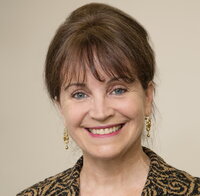
The program in Developmental Psychology represents interests in many areas of development. Faculty and students focusing on the area of cognitive and linguistic development conduct research exploring cognition from infancy to adulthood, language acquisition, conceptual development, and brain development. Faculty and students focusing on the areas of social and emotional development conduct research on parenting, family relationships, peers, as well as school achievement and developmental psychopathology. Across areas, there is a concern with the underlying biological substrates of development and the role of social context.
Regardless of content area, faculty and students in the Developmental program ask how children change as they progress from earliest infancy through adulthood. Of particular importance are the causes of developmental change. Developmental faculty and students examine both how basic processes of learning and development enable children to acquire fundamental adult abilities and the forces that lead children to follow unique trajectories as they make their way through life.
Admission Information
The Developmental Psychology Program at the University of Illinois at Urbana-Champaign invites applicants for admission to our doctoral program for Fall 2026. Our application deadline is December 1, 2025. More information can be found at https://psychology.illinois.edu/phd-psychology/phd-program-application-requirements. The following faculty are planning to admit students as primary research advisors for the upcoming year: Dan Hyde, Caroline Kelsey, Mike Rizzo, Karen Rudolph, and Eleanor Seaton.
Curriculum
One of the primary goals of the Developmental graduate program is to train students to become independent researchers and educators. Graduate students receive their training through research, coursework, and teaching. Empirical research is a fundamental theme of the program. Within this framework, however, students may elect to concentrate on basic or applied problems, in laboratory or naturalistic settings. Graduate students may select from a wide range of course offerings. These include several core courses that lay the basic theoretical foundations of the discipline, as well as a strong statistics sequence. Students with a particular interest in statistics have the option of earning a minor in this area. Minors in other areas, such as Cognitive Psychology, Cognitive Neuroscience, or Social Psychology, are also available. In addition, the Developmental program offers a number of advanced graduate seminars tailored to meet current faculty and student interests. There is also a weekly research seminar attended by all division members.
Minors and concentrations. Students may complete a minor in any of the other program areas in the department (see department program areas list). Custom minors and concentrations in subareas within or outside the psychology department are also possible. For example, students can choose to complete a concentration in Developmental Psychopathology, which involves an integrated set of courses, including a Proseminar in Developmental Psychopathology, and research experiences bridging developmental and clinical psychology. Some of our students have also chosen to complete a master’s degree in Statistics, although doing so requires an independent application process.
Facilities and Resources
Outstanding research facilities are available to our students, including large developmental laboratories in the Psychology Building, a University of Illinois Child Development Laboratory Preschool with additional research space, and the Beckman Center for Advanced Science and Technology. Relations with local schools facilitate off-campus research. All students have access to a vast array of state-of-the-art technologies as well as a high-end computing environment. In addition, equipment for conducting developmental neuroimaging research with fMRI, EEG/ERP, and optical imaging (fNIRS, EROS) are available.
Affiliated Departments, Programs, and Institutes
The Developmental Psychology program is situated in a larger community of scholars who make important contributions to our students' education and professional development. The Psychology Department has strong programs in Cognition, Language, Vision, Clinical, Social-Personality, Cognitive Neuroscience, and Behavioral Neuroscience. There are a number of other departments and programs on the University of Illinois campus that include faculty concerned with children's development as well as adult language and cognitive processes. In particular, the departments of Human Development and Family Studies and Educational Psychology house a large number of research programs focused on children's development. Many Psychology faculty are also associated with the Neuroscience Program on campus. Cross-cultural research opportunities are available in China as well as other countries.
Faculty working in Developmental Psychology

















Related News
- 2025-11-11 - We are excited for our new Assistant Professor, Caroline Kelsey to start after the new year, but in the meantime she is currently looking for students to join her team! The Study of Early Experiences on Development (SEED) Lab's research focuses on understanding how infants and young children grow and develop.Visit the homepage to learn more...
- 2025-09-09 - The Department of Psychology is thrilled to welcome Dr. Yukun Yu as a Visiting Assistant Professor in the Developmental area.Can you briefly share your academic and professional background that led you to the Department of Psychology at the University of Illinois at Urbana-Champaign?I came to Illinois as a grad student and worked with Dr. Cindy Fisher in the developmental area....
- 2024-09-03 - Associate Professor Dan Hyde and co-investigator Assistant Professor Bo Zhang have received a 5-year, $2.4 million grant from the National Science Foundation to study the relationship between brain and cognitive development in the context of early numeracy in children from 3 to 6 years of age. We asked Professor Hyde to tell us more about this exciting and ambitious project...


